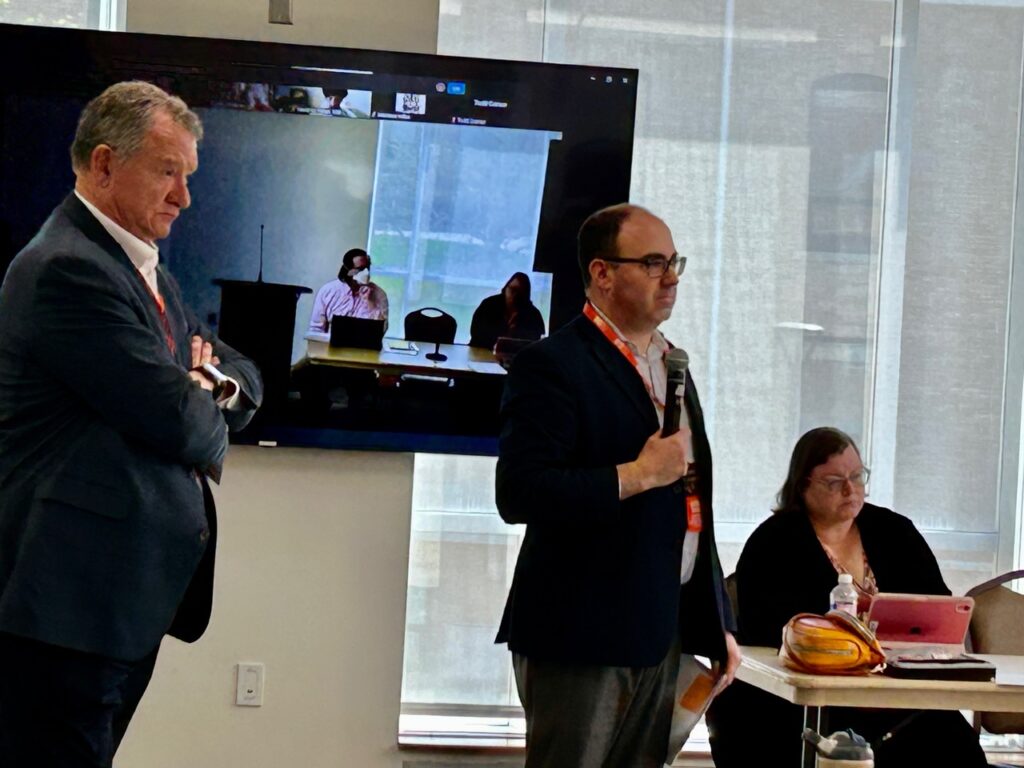BY MEGAN HENRY
The University of Toledo is suspending nine undergraduate programs in response to a controversial new higher education law that is set to take effect this summer.
Admission to Africana studies, Asian studies, data analytics, disability studies, Middle East studies, philosophy, religious studies, Spanish and women’s and gender studies programs has been suspended starting with the 2025-26 school year “in compliance with SB1”, according to a Monday news release from the university.
Students currently enrolled in one of the programs can still complete their degree and all nine of these programs will remain available as minors.
“I also want to be clear that these disciplines remain an important part of UToledo,” Dr. Scott Molitor, Toledo’s interim provost and executive vice president of academic affairs, said in a written statement. “Faculty will continue to teach courses that are part of minors, certificates or concentrations, as well as significant components of our core curriculum.”
Senate Bill 1 bans diversity efforts, regulates classroom discussion, prohibits faculty strikes, creates post-tenure reviews, puts diversity scholarships at risk, and creates a retrenchment provision that blocks unions from negotiating on tenure, and eliminates undergraduate degree programs that produce on average less than five degrees annually over a three-year period, among other things.
State Sen. Jerry Cirino, R-Kirtland, introduced the bill at the end of January, it quickly passed both chambers and Gov. Mike DeWine signed it into law March 28. It affects Ohio’s public universities and community colleges, and is set to take effect at the end of June. Youngstown State University faculty are trying to get a referendum on the November ballot to block S.B. 1.
UT was already undergoing an annual review of low-enrolled academic programs when DeWine signed S.B. 1 into law, according to the university.
“At the same time UToledo was undergoing its program review process, Ohio Gov. Mike DeWine signed into law Senate Bill 1, which includes language that requires universities to eliminate undergraduate programs that have conferred fewer than five degrees annually over any three-year period,” according to the university.
[RELATED: ‘Nothing speaks like money.’ Republican Senator wants Ohio higher education funds tied to new law]
Those nine programs had 57 students majoring in them during the spring semester and 15 students graduated from those programs during the 2023-24 school year, according to the university.
Toledo is suspending 12 additional degree programs unrelated to S.B. 1. They are:
- Bachelor of Business Administration in Organizational Leadership and Management
- Bachelor of Science in Health Information Administration
- Master of Arts in Philosophy
- Master of Arts in Sociology
- Master of Education in Educational Research and Measurement
- Master of Education in Educational Technology
- Master of Education in Educational Psychology
- Master of Music in Music Performance
- Master of Science in Geology
- Ph.D. in Curriculum & Instruction: Early Childhood
- Ph.D. in Curriculum & Instruction: Educational Technology
- Ph.D. in Foundations of Education: Research and Measurement
“It is important to keep our academic portfolio current with the degree programs our students want and that industry needs from their higher education partner,” Molitor said. “This is now our third year of an annual process to evaluate our programs and make sure we are allocating resources to areas in high demand, which requires us to both look for new programs we should start offering and existing programs that we should stop offering.”

BGSU takes a more measured approach
At Tuesday’s Bowling Green State University Faculty Senate meeting, the development at the University of Toledo was brought up.
President Rodney Rogers said no such action is contemplated at BGSU.
The university has been scrutinizing low enrollment programs for a number of years. Even before the program viability project was launched in 2021 under then Provost Joe Whitehead.
While BGSU has suspended a few programs, including a BA in Film Studies that was acted on at Tuesday’s meeting, it has taken a more measured approach, Rogers said. Most programs were folded into larger ones.
He pointed to the new Bachelor of Arts in World Languages and Cultures that was approved by trustees in February.
That major consolidated six language majors that had low enrollment, into one major with specializations.
Had these actions not been done before the provisions in SB1 were in force, then maybe the six existing language programs would have been at risk.
But, he said, “as a result of some really creative and collaborative work” that was not the case.
Rogers said BGSU is concerned about a proposed change in the biennial budget that would shift part of the state funding formula. The shift would give increased weight over the current system to enrollment, and somewhat less weight to graduation and retention rates.
BGSU has fared very well when the funding formula was switched to benefit schools that retained students and got them to graduate.
— David Dupont, BG Independent





